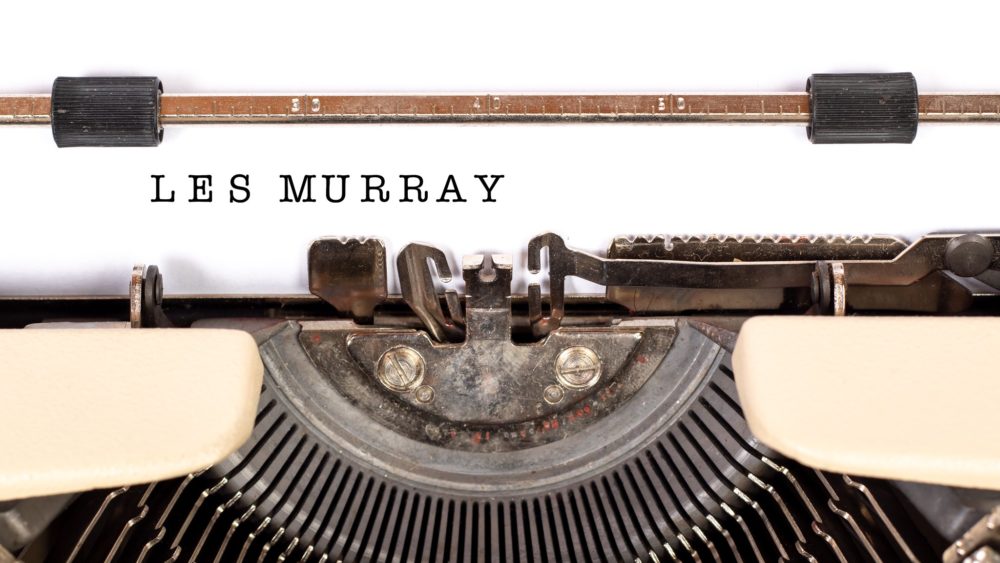Les Murray: Not absolutely ordinary at all
Dr Greg Clarke pays tribute to one of his favourite poets.
The greatest of Australian poets has “vanished into the future”. Les Murray’s unique poetry will endure in the same manner as Seamus Heaney and Walt Whitman. And each volume he dedicated “To the glory of God”.
Murray’s poetry was about language itself. He was a translator and a savant, whose syntax baffled and then delighted many a school student. He punned happily, a quality I admire in a grown man (my favourite title of Murray’s is ‘Lunch and Counter Lunch’). As fellow poet Geoff Page said, “In the days before Google, Murray was its human equivalent. He seemed to know at least something about everything.”
Nothing in God’s world was too small, apparently ugly or useless, to be unworthy of poetry.
He was also enamoured by the creator God, with a suite of poems that will endure for centuries as reflections on the relationship between God and the physical world. In poems such as ‘The Broad Bean Sermon’, ‘Bat’s Ultrasound’ and ‘Pig’ he outlined a theology of divine attentiveness: nothing in God’s world was too small, apparently ugly or useless, to be unworthy of poetry.
![Les Murray im Lyrikkabinett München 2014/ Kritzolina [CC0]](https://www.eternitynews.com.au/wp-content/uploads/2019/04/Les_Murray_im_Lyrikkabinett_München_2014_1000x563_acf_cropped.jpg)
Les Murray in Germany, 2014. Kritzolina [CC0]1 License
Arguably, his most memorable poems reflect on the surprising discovery that human beings are more than animals. His most famous poem, ‘An Absolutely Ordinary Rainbow’ describes a man weeping in Martin Place, an unlikely spiritualising of the world of the city and a recurrent theme for Murray. His reflections on the confusion of intimate relationships in poems such as ‘Burning Want’ (about school) and ‘The Last Hellos’ (about his father’s death) never leave the reader.
I mourn his passing and give thanks to God for his imagination and humility, his humour and his seriousness, and his ability to turn personal pain into an offering for others.
And his poetry about the nature of religion is unparalleled among Australian writers. For example, his poem ‘Poetry and Religion’ is often cited:
Full religion is the large poem in loving repetition;
like any poem, it must be inexhaustible and complete
with turns where we ask Now why did the poet do that?”
I often think of the final image of this poem, where Murray describes both religion and poetry as like a bird flying, with wings beating and shutting in turn.
Others will offer more on Murray’s work, but I mourn his passing and give thanks to God for his imagination and humility, his humour and his seriousness, and his ability to turn personal pain into an offering for others.
It’s plausible Murray may now receive the Nobel Prize for Literature posthumously, something that is only possible if he has already been shortlisted for this year’s award (given in October). If that happens, he will be only the second Australian to receive it, the other being Patrick White in 1973. Both of them expressed views that are alternately in and out of fashion with the literary crowd, and both were conflicted by the idea of such prizes (White famously didn’t even turn up to receive his, sending artist and friend Sidney Nolan in his place). But Murray, like White, took as his subject the unique place of the human being amidst gargantuan nature and its elusive God, and for that reason I hope Murray is acknowledged. As he wrote, what better to “concert our daylight and dreaming mind”.
Email This Story
Why not send this to a friend?




